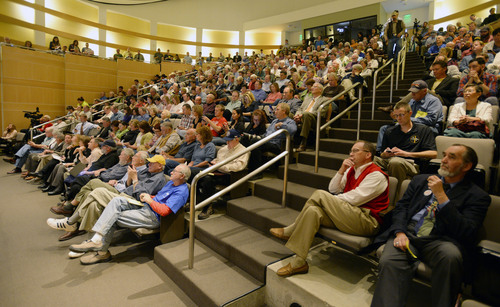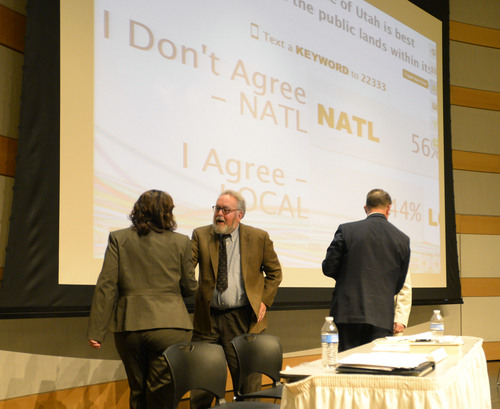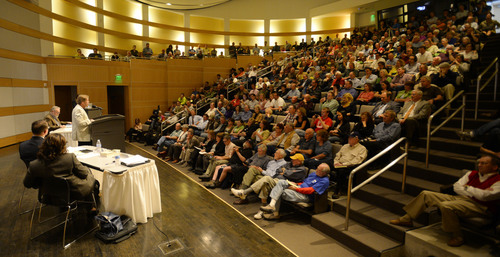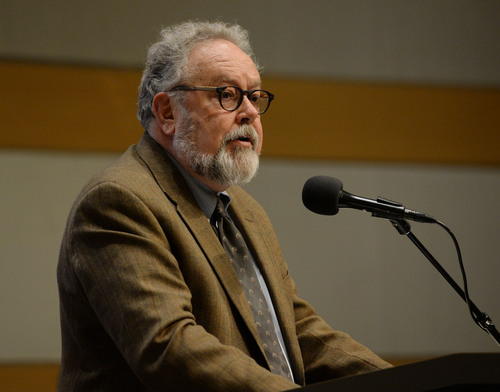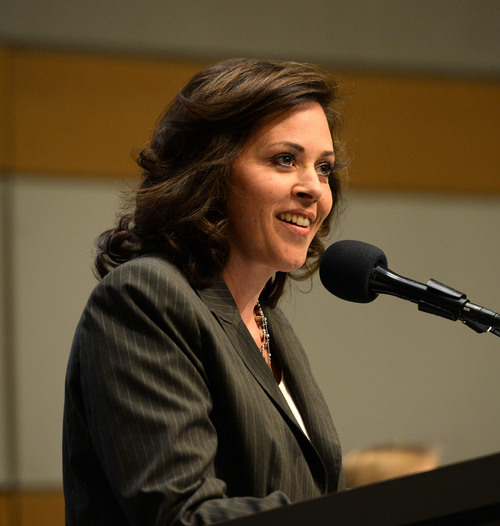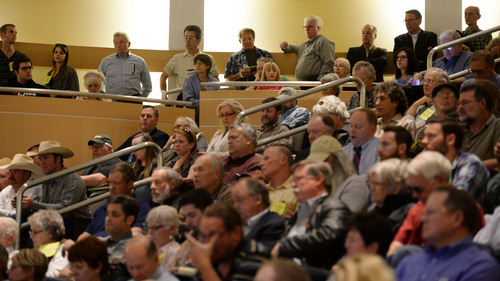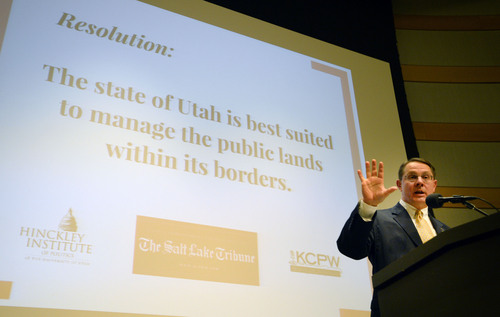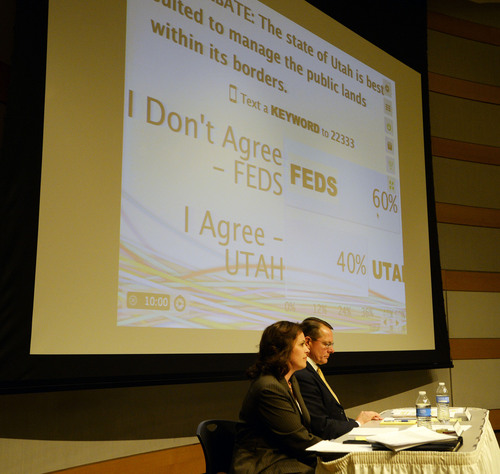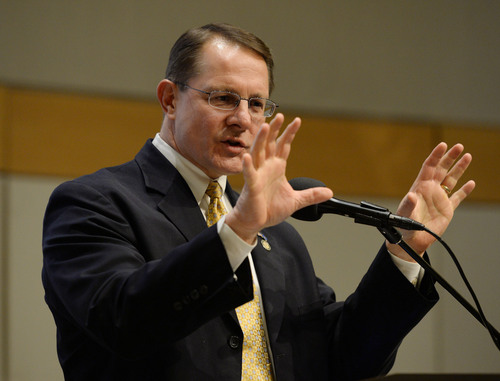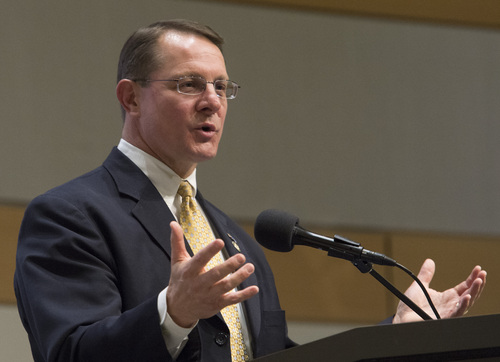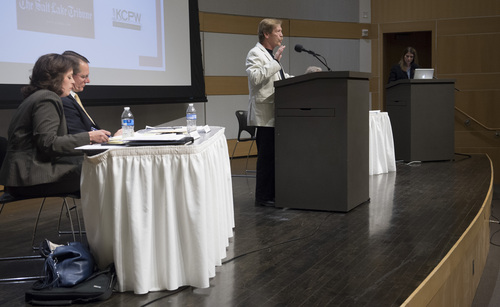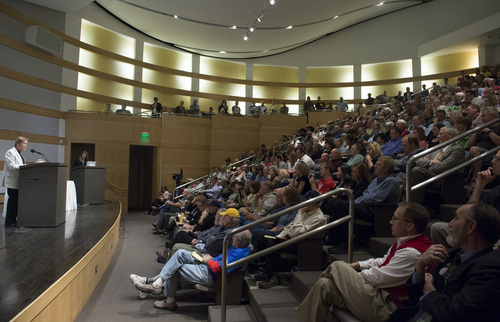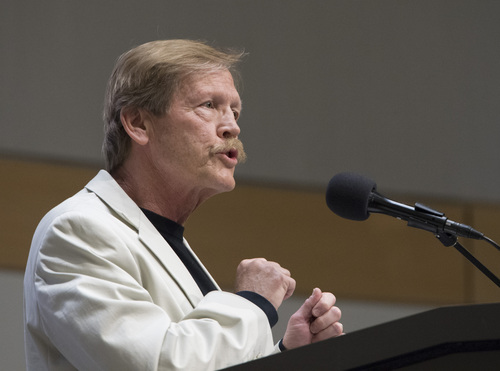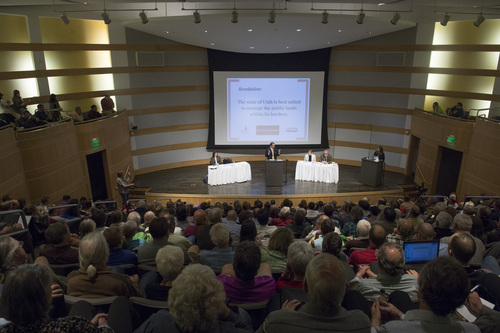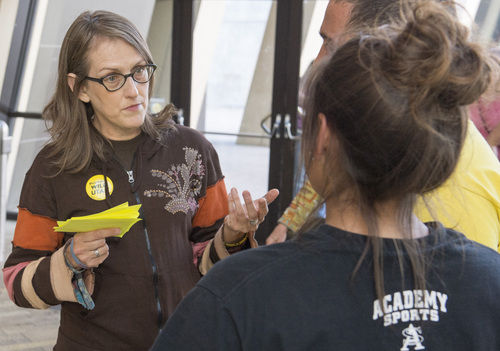This is an archived article that was published on sltrib.com in 2014, and information in the article may be outdated. It is provided only for personal research purposes and may not be reprinted.
Is the federal government the West's absentee landlord, accountable to no one and implementing inane policies that are wrecking both the land and rural communities? Or is it doing its best to manage big swaths of Utah's mountains and deserts under conflicting mandates in hopes of balancing a smorgasbord of competing interests and preserving the land for future generations?
To Ken Ivory, a Republican lawmaker from West Jordan, the answer is as clear as the part in his hair.
Under federal management, fire danger is "off the charts" on these lands and they are being cordoned off from the people who live near them, Ivory said Wednesday at a town hall debate addressing the question of whether Utah is best suited to manage public lands within its borders.
But thanks to a spate of 19th century "giveaway" laws, the government has long since handed millions of Western acres to private enterprise, countered Dan McCool, a University of Utah political scientist. Short-sighted policies of the past ensured forests were aggressively cut and rangelands overgrazed. Newer laws reflect a national interest in conservation and multiple use on these lands, he said.
Land management has become a lightning rod issue in Utah and around the West, where local officials, ranchers, miners and ATV enthusiasts increasingly challenge federal authority, sometimes breaking the law while they're at it.
To Ivory, the best solution to these growing conflicts is for the federal government to cede control of public lands to Utah and the other Western states, whose governments can be more responsive to the needs of the people and to conditions on the ground.
"Not only can Utah afford to manage our lands to support our schools, protect the environment, and grow our economy, we can't afford not to," Ivory told a packed auditorium at Salt Lake City Public Library auditorium, where partisans in both sides of the debate were well represented.
The Salt Lake Tribune co-sponsored the debate with KCPW 88.3/105.3 FM and the University of Utah's Hinckley Institute of Politics. Joining Ivory was Utah House Speaker Rebecca Lockhart, R-Provo, and joining McCool was Salt Lake City attorney Pat Shea, who directed the Bureau of Land Management during the Clinton years.
McCool blasted as a "myth" Ivory's key argument that the federal government broke its "promise" to Utah and other Western states to cede them the public lands within the borders, pointing to the very language in Utah's enabling act passed by Congress in 1894.
"That the people inhabiting said proposed State do agree and declare that they forever disclaim all right and title to the unappropriated public lands lying within the boundaries thereof," the law reads.
Still, the Republican lawmakers laid out a familiar litany of failures on the part of the BLM and U.S. Forest Service. They cited a bark beetle infestation devastating Dixie National Forest, billions of dollars in deferred maintenance, a wild horse population boom they say is destroying the West Desert range and the closure of thousands of miles of roads, cutting off access to millions of acres.
Shea contends Republicans have themselves to blame for federal land agencies problems by cutting their budgets under "the delusional proposition that the very wealthy don't need to pay their share of taxes." He insisted Ivory divulge whether he endorses the behavior of Nevada rancher Cliven Bundy, whose refusal to pay federal grazing fees triggered an ugly standoff between the BLM and his armed supporters.
Ivory ducked the question and called out a prescribed burn proposed on Monroe Mountain in Fishlake National Forest. The lawmaker was outraged that the Forest Service isn't interested in harvesting merchantable timber because, he alleged, the agency says such an action would require an exhaustive environmental review that would wind up in litigation.
"With rigid, failed policies like this, it makes you wonder if they really care about the people on the ground or do they just want to watch the world burn," Ivory said.
What Ivory didn't mention was the goal of that project. The Service hopes to restore native aspen on tens of thousands of acres that have been colonized by conifers, much of which have no commercial value, according to Fishlake officials. Monroe Mountain has lost aspen largely because of grazing by livestock and elk, which were introduced on the mountain in the 1970s, and fire suppression.
According to McCool, the West's public lands are "in an adjustment period" after decades of heavy resource use.
"Changing those policy and coming up with adaptive management plans costs money," McCool said. "We continually subsidize extractive industries and the kind of things that damage the land most."
Shea and McCool argued the problems of public land management cannot be fixed with "the flip of a switch" but with better collaboration between the feds and the states.
Following the debate, 336 listeners voted Shea's side the winner by an eight-point margin.


